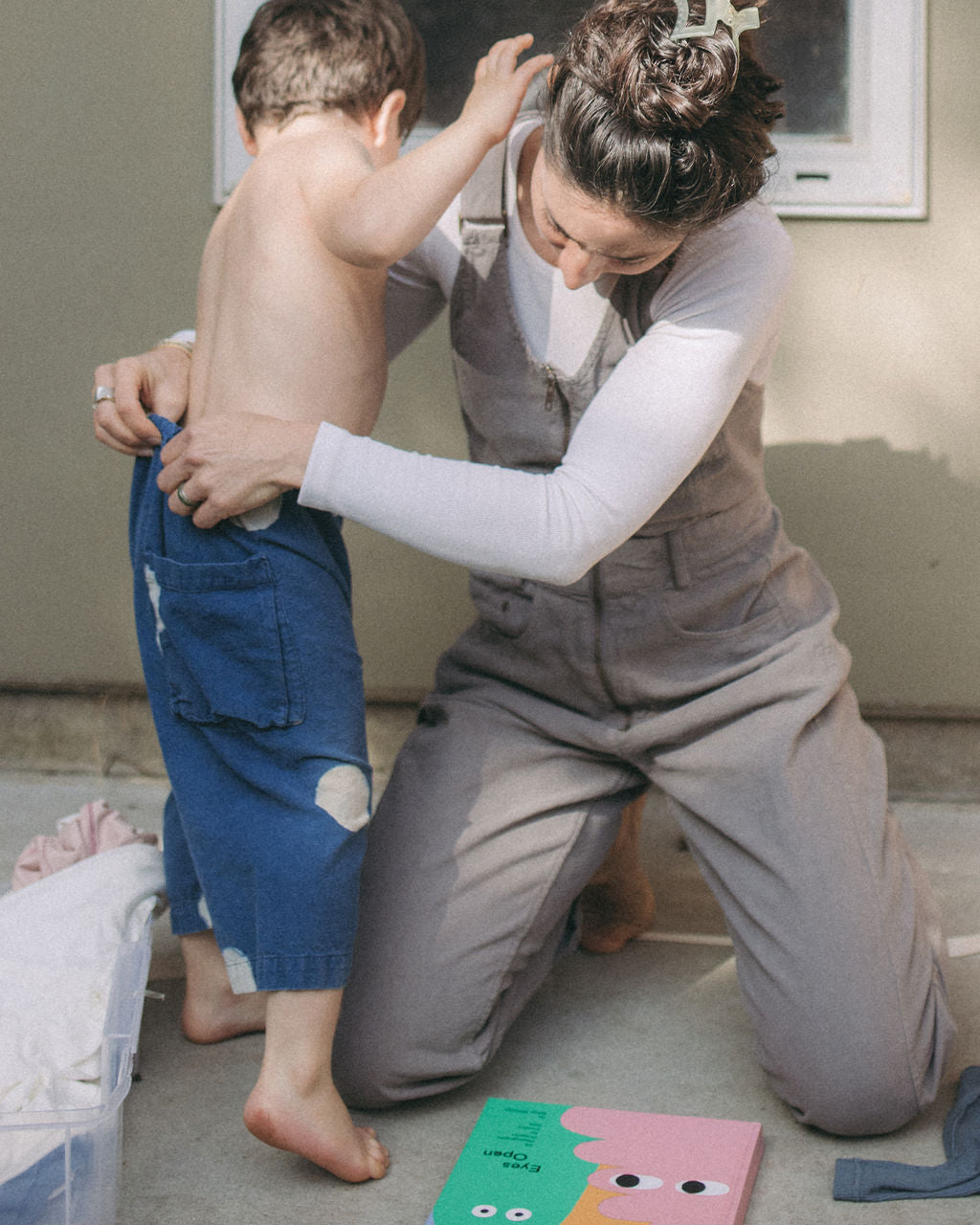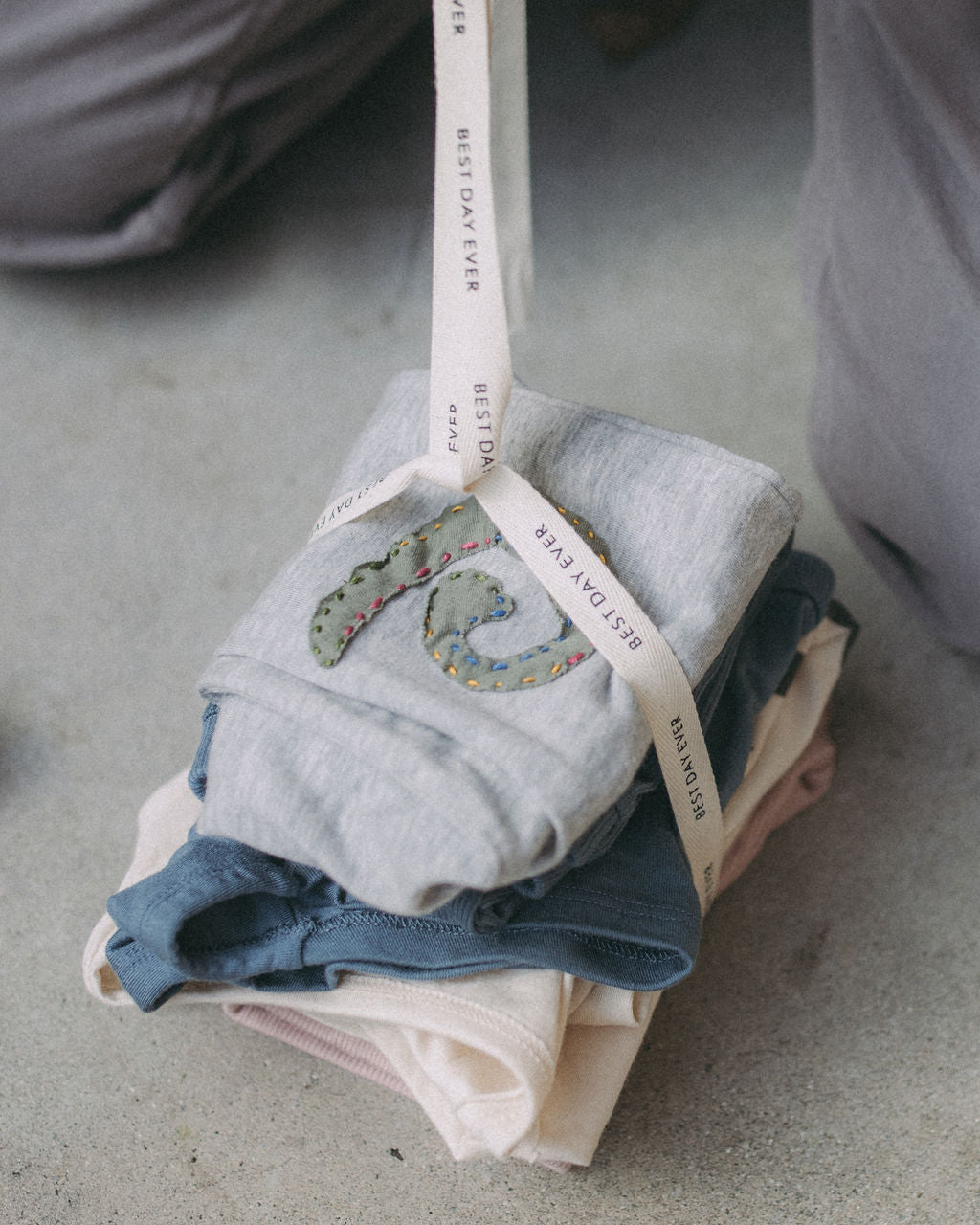呵护您的材料
从缝线到腰带,我们服装的每一个细节都是精心挑选的,充分考虑了健康和舒适度——全部超柔软、舒适,并且完全不含刺激性化学物质!
这种创新的纤维素纤维采用生态友好的方式在峡湾收获,富含褐色海藻,可释放抗氧化剂和维生素,对皮肤有滋养和恢复活力的功效。
海藻具有吸湿透气的特性,可吸收身体水分,为敏感肌肤提供舒缓触感。富含镁、钙和钾等矿物质,有助于改善皮肤健康、减少炎症和缓解刺激。
我们的海藻纤维生产遵循闭环系统:制造过程中使用的水被回收利用,废物被重新用作天然肥料。该材料 100% 可生物降解,是真正的环保选择。
采用 REFIBRA™ 技术的 TENCEL™ 莱赛尔纤维代表了兰精在循环经济领域的前沿创新。REFIBRA™ 技术将消费前和消费后的纺织废料中的棉屑进行再利用,将其转化为再生纸浆。然后将这种纸浆与木浆混合,产生含有 30% 再生成分的新型 TENCEL™ 莱赛尔纤维。最终得到的是一种非常柔软且可持续的面料。
Tencel™ 莱赛尔纤维(来自负责任管理的森林中的可再生木材)与有机棉的混合,带来丝般柔软的触感和轻盈飘逸的垂坠感。有机棉增添了天然质感,使其超级柔软、舒适,且贴身凉爽。
虽然涤纶线因其价格实惠和强度高而常用于缝制服装,但我们选择经全球有机纺织品标准 (GOTS) 认证的有机棉线,该棉线由不使用杀虫剂种植的超长有机比马棉纤维制成。虽然价格昂贵且不太普及,但这种优质线符合我们对可持续性和质量的承诺。
我们使用 bluesign® 认可的低影响染料,与传统染料相比,这种染料更环保。传统方法通常涉及有毒化学品,其中许多具有致癌性和危害健康性,并且需要大量用水。Bluesign® 染料注重安全性和可持续性,确保工艺更清洁,环境足迹更小。
由合成材料制成的松紧腰带含有有害化学物质和染料,会污染水源并影响当地社区。此外,这些材料不易生物降解,导致垃圾填埋场的垃圾增加。
相比之下,我们使用由天然橡胶树制成的弹性纤维,将其编织到有机棉或 Tencel™ 莱赛尔纤维中。这种环保替代品由我们的德国制造商与奥地利的一家工厂合作开发,可生物降解,确保更加可持续和对环境负责的选择。
这里没有痒!我们使用感官友好的无标签内容标签和水性染料,以确保舒适。
Our commitment to using recyclable paper packaging is driven by the principles of sustainability and circularity. Recycling offers a more circular and environmentally beneficial end-of-life solution compared to composting. Paper packaging, which is readily recyclable in curbside systems, retains much of its initial value when recycled, reducing the need for new raw materials and minimizing waste. To further our efforts, we’ve incorporated a release liner made from 100% recycled content that is also curbside recyclable, paired with a recycle-friendly, high-performance adhesive. This approach aligns with the hierarchy of waste reduction, where recycling is prioritized over composting because it preserves resources more effectively and supports a sustainable materials economy.
In contrast, most compostable packaging, particularly those made with bioplastics like PBAT and PLA, often degrades the quality of the compost produced. These materials, along with their additives, inks, and adhesives, do not contribute valuable nutrients to compost and can even introduce contaminants, making the output unsuitable for organic farming. Composters nationwide, including those in Colorado and Oregon, have faced significant challenges with compostable packaging, leading to bans on its acceptance. By choosing recyclable paper packaging, we aim to ensure that our packaging contributes positively to the environment, supporting a cleaner, more sustainable future.


